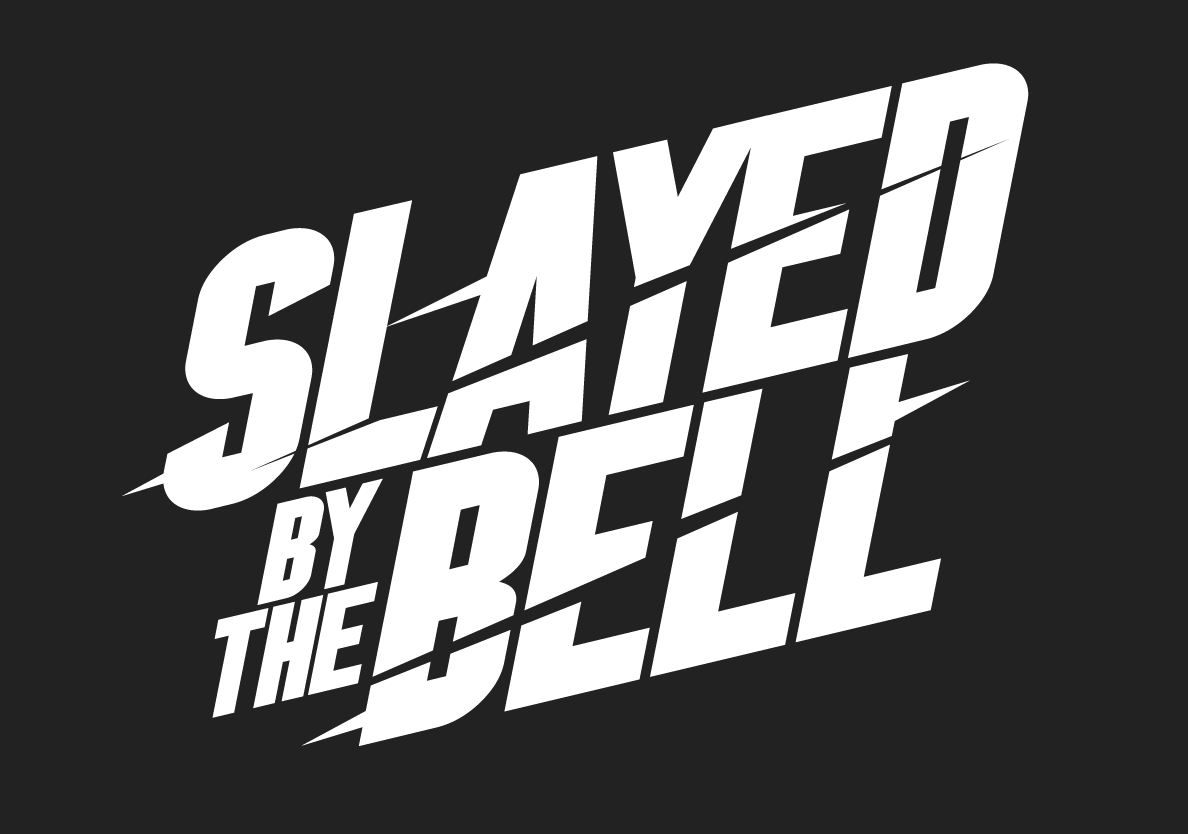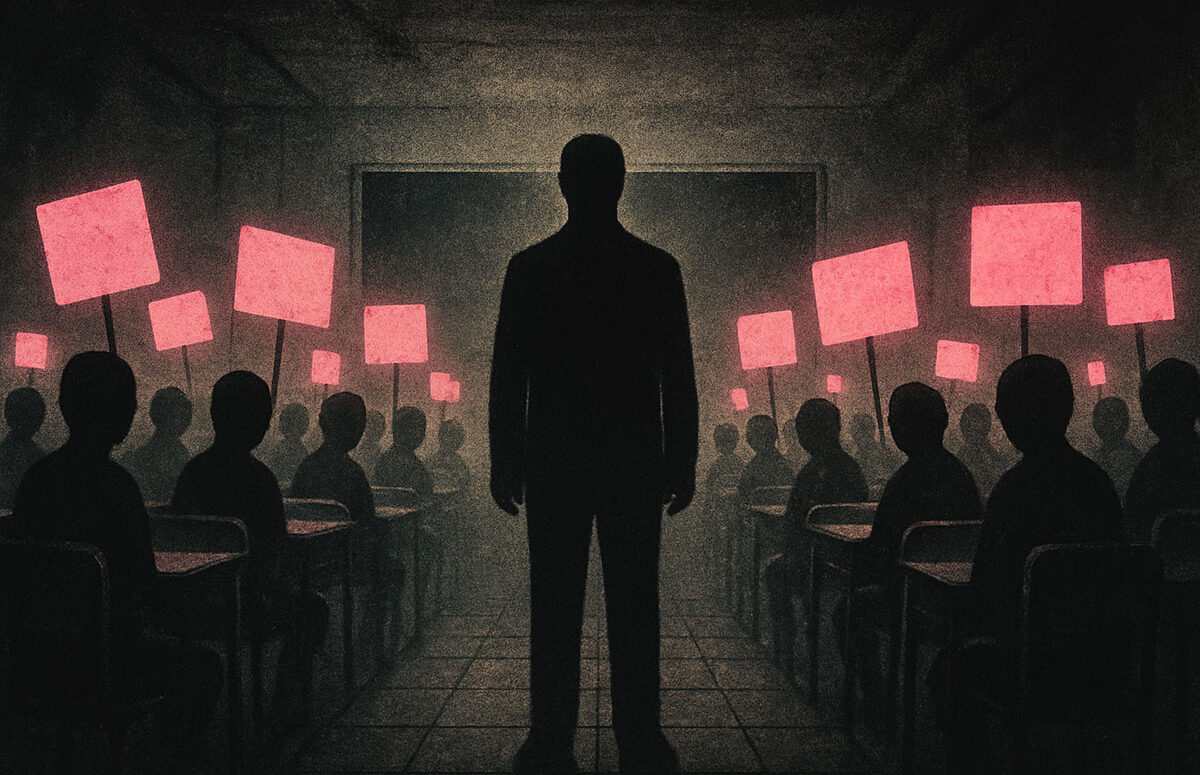No, students don’t get a vote.
Somewhere along the line, we started treating classrooms like town fucking halls. Rules became suggestions. Sanctions became “conversations.” Teachers were told to listen more, say less, and act like facilitators rather than leaders. And now we see the rusults: Total fucking chaos. Kids don’t need a peer, they need a boundary. A classroom is not a democracy. It’s a learning environment, and the adult is in charge. So step the fuck up and act like a fucking adult!
Problem
We’ve blurred the lines between authority and authoritarian. Afraid of being labelled controlling or oppressive, schools have swung so far towards “student voice” that they’ve forgotten about adult responsibility. We bend over backwards to consult students on rules, routines, and even punishments, as if discipline is something to be debated and decided on together. What the actual fuck?
Causes
A few bullshit ideas have driven this mess:
- The illusion of agency: Richard Shotton points out in The Choice Factory that people overestimate the impact of choices that don’t really exist. Schools are now performing choice theatre—“Would you like to move seats or go outside?”—instead of applying real boundaries: “Get the fuck out”
- Misapplied behavioural psychology: Dan Ariely’s work shows people act better when they know someone’s watching and there are consequences (the test cheating experiment:-). Yet we’ve gutted consequences in favour of “nudges” and token charts. This isn’t behavioural science, it’s wishful thinking dressed as theory.
- Corporate influence on education: As schools superficially imitate HR departments or whichever dull fucking business is tending of facefuck, they adopt flat structures and “inclusive decision-making.” Sounds lovely until 9C decide they’d rather watch YouTube than study Macbeth. Orwell warned us: when language becomes vague, so does control. Are short skirts banned anymore? Is jewellery a detention this week? Kids need black and white and no room for ambiguity.
- The cult of student voice: Empowering students is great when it means listening. It’s a fucking disaster when it means letting them dictate policy. Giving power without accountability breeds entitlement. The dickheads will always quote the rulebook back at you and try to catch you out. So keep the rules clear, enforce them hard, and never, ever take instruction from a student on how to apply them. If it’s a rule, it’s a fucking rule. End of.
Effects
Teachers are undermined. Behaviour policies are ignored. Sanctions are up for discussion. Kids see adults hesitate and they exploit the fuck out of it. The power vacuum invites disruption, argument, and performance. And then we wonder why engagement’s down, stress is up, and classrooms feel unmanageable.
We’re not just losing control—we’re handing it away. In The Collapse of Classroom, I wrote about the breakdown of basic respect. This is part of it. You can’t expect civil behaviour when leadership signals that rules are optional, and staff look unsure whether they’re allowed to enforce anything.
In Selective Enforcement Is Killing School Culture, I highlighted the chaos that comes when schools tolerate some behaviours but punish others based on optics or convenience. That selective mindset thrives in so-called “democratic” classrooms—where expectations shift depending on the student, the teacher, or the day of the week.
I’ve also argued we’ve traded thinking for compliance. This is the flip side: we’re now afraid to even ask for compliance. And in the vacuum, kids learn that boundaries are fluid, authority is weak, and behaviour is a negotiation.
Worse, it screws over the kids who actually want to learn. The ones who need calm, consistency, and clarity get sidelined. We talk about inclusion, but what we’ve built is a culture where the loudest and most disruptive hold all the power—and no one wants to say it out loud.
Solutions
Stop apologising for being in charge. Teaching is not a popularity contest. It’s not about giving kids power for the sake of it; it’s about giving them structure so they can thrive. Here’s what needs to happen:
- Redraw the power lines. Make it clear: the teacher sets the tone, the expectations, and the boundaries. Always.
- Kill the illusion of choice. Don’t pretend a punishment is optional. Don’t ask for consensus on rules. Set them. Enforce them. Fucking stick to it.
- Reclaim professional judgement. Stop outsourcing decisions to behaviour panels, student votes, policy committees and the executive heads. You’re the adult. You know what works. Use it.
- Challenge the performative bullshit. If a system only looks good on a policy document but fails in a real classroom, bin it. Don’t fucking hesitate.
Conclusion
A classroom is not a democracy. It’s a place where someone has to lead, or no one learns. We’ve tried the vote-everything model. It’s not working. Students don’t need a say in everything, student voice can be toxic and they need adults who aren’t afraid to say “no.” Stop pretending that running a class like a focus group is progressive. It’s cowardly. And as Rage said, it’s time to “take the power back”.

